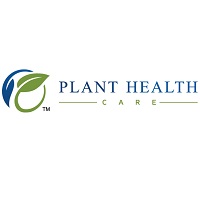Plant Health Care (LON: PHC), a leading provider of novel patent-protected biological products to global agriculture markets, has today provided the following update in relation to the 2018/19 field trials of the PREtec peptide PHC279 for the control of Asian Soybean Rust (ASR) a potentially devastating disease that regularly affects soybean yields in Brazil.
Highlights:
- PHC279 significantly improved ASR control of foliar fungicide programmes, even in fields facing heavy disease pressure.
- Up to 16% increase of soybean yields when PHC279 was applied as a seed treatment.
- Up to 45% increase in the effectiveness of foliar fungicide treatments when seeds had been treated with PHC279.
- Plant Health Care is now moving to register and manufacture PHC279 for launch into soybeans in Brazil as a seed treatment for ASR control.
Brazil is the world’s largest exporter of soybeans, with some 36 million hectares (89 million acres) planted in 2018. One of the challenges of producing soybeans in Brazil is ASR, which is a potentially devastating disease. Growers spent $2.1 billion in 2017 on soybean fungicides in Brazil.
Plant Health Care’s PREtec peptides stimulate the plant to defend itself. Derived from natural proteins, these proprietary peptides are a novel, environmentally friendly approach to protecting crops and increasing yields, compatible with mainstream agricultural practice.
The Company has been trialling the lead peptide PHC279 in Brazil since 2017 under various types of applications. In this year’s crop, the Company focused on trials where PHC279 was applied as a seed treatment to soybeans. In contrast, the main focus in the previous year was on mixtures with fungicides applied as a foliar treatment by spraying onto the leaves of plants.
In independent trials, carried out by PLANTEC, a major contract research organisation in Brazil, PHC279 significantly improved ASR control of foliar fungicide programmes, even in fields facing heavy disease pressure. Disease control was improved by up to 45% when PHC279 was applied as a seed treatment. In addition, yields of soybeans were increased by up to 16% when compared with foliar fungicide programs alone. These results provide increasing support for the acceptance of PHC279 as a compelling tool to combat ASR.
Based on these positive results, Plant Health Care intends to move forward to commercialise PHC279 in Brazil. The Company intends to seek a fast track product registration and is making plans to produce PHC279 at commercial scale.
Paulo Fedato, Director of Research and Experimentation at PLANTEC, said:
“I am very excited to see Plant Health Care continuing with the development of PHC 279. Based on the results seen in PLANTEC’s fields I am confident that it will be a great tool to help growers managing the difficult problem of ASR.”
Jeff Tweedy, COO of Plant Health Care, said
“After two years of trials, we are extremely encouraged with the performance of PHC279 applied as a seed treatment for ASR control. We see this as a valuable technology for the Brazilian soybean growers. This is further demonstration of the value of the PREtec platform and has given PHC the confidence to move forward with the registration and commercialization of this new technology. The Company continues to work with more than six partners, who are testing peptides on many crops around the world, in markets worth more than $5 billion. With the registration of our first peptides progressing in USA and the scale-up of manufacturing started, we look forward to delivering this novel technology directly to markets in USA, Brazil and other countries.”








































